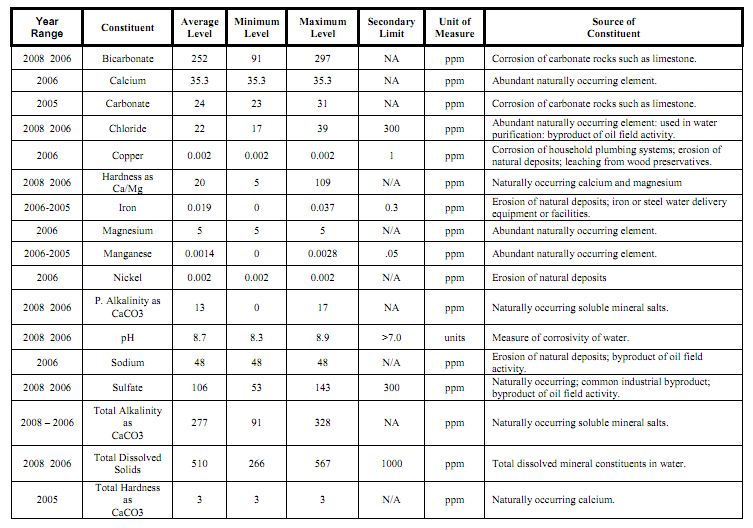There is a period for end of sentence after the four,
Ah, OK. It also occurred to me that you are talking about treated water pH and not mash pH as 3.3 - 5 would all be too low for mash pH. Assuming that it is the water you are talking about and not the mash going to pH 4.3 will remove all the alkalinity (assuming that alkalinity is defined to 4.3 and it usually is). If you go below 4.3 the water will have negative alkalinity and tend to pull mash pH down. That may be a good thing - in fact it will be a requirement for most beers but it is a little dangerous to consider just the water without considering the grist. It would probably be best to add acid incrementally as you monitor the pH down to the point where it reaches 4.3. In so doing you are actually measuring the alkalinity i.e. that's exactly what they do in the lab. At 4.3 the alkalinity is 0 and your mash pH should be the distilled water pH for your grist. You will probably need a bit more acid because the distilled water pH is generally too high. I'd recommend "neutralizing" the water, making a test mash with it and then adding additional acid as necessary to get to proper mash pH. The extra amount will vary with the beer and that's why I'm not keen on always setting the water treatment pH to some lower value at first. With experience you ought to be able to do that, however but you should always check mash pH.
...how or where to get food grade HCL let us know.
.
An ideal source is Brupak's CRS (Carbonate Reducing Solution) which is sold in the UK but I am not able to find a US distributor. I keep hoping some enterprising outfit will start to import it and one may have done so but I can't find it in a web search. Other than that you will have to go to a chemical supplier and specify that you want FCC grade HCl. There are several that will sell over the net in small quantities.
Meanwhile 36% HCL is HCL and the remainder is non reactive distilled water.
Is it? The point being that the stuff you buy at the hardware store is technical grade and no assay is provided (at least I've never seen one on hardware store acid). At least use ACS grade. Some attempt is made to get all the other stuff out of that grade and in fact ACS grade may well be purer than food grade. The big deal with food grade is not purity (beyond making sure that arsenic and similar things are at sufficiently low level) but the fact that the packaging has been executed consistent with required FDA practices for things you eat.
I am no good at math but 4-6 mililiters in 53,000 is what 100 ppm or is it 10?
100
On the subject of the PH being too low. I have experimented with the amount of HCL and the starting brew water PH. The beer turns out smoother if you are using hard water as a base with a brew water PH below 5. JMO.
This confirms that you are talking about water pH and not mash pH. I suspect that what is going on here is that harder water will have higher temporary hardness which requires you to use more HCl to neutralize the bicarbonate resulting in higher chloride levels. Chloride smooths beer. In going to pH 5 you neutralize 95% of the alkalinity but not all and the mash pH is probably too high. If you add more HCl to the water not only do you add more chloride. It takes 70 mg/L HCl per liter of water at 100 ppm alkalinity to neutralize 95% of that alkalinity and 73.5 to get the rest which brings you to pH 4.3 which will get you to the distilled water mash pH. Adding even more HCl will add more chloride and bring mash pH into the proper range.
If you google the reaction you get 2HCl+ CaCo3 -> CaCl2 + H20 + CO2
I don't doubt that because this is the reaction that takes place if you put a lump of limestone in a beaker and add hydrochloric acid to it. But that isn't what happens in brewing. The first step is that limestone is dissolved by carbonic acid in ground water:
CaCO3 + H2CO3 --> Ca++ + 2HCO3-
Thus the carbonate is converted to bicarbonate and water at normal pH is a solution of mostly calcium bicarbonate. Water at pH 8.3 has only 1% of the total carbo as carbonate and that number goes down as the pH is lower (0.03% at pH 7).
If hydrochloric acid is added to this water it reacts with the bicarbonate through the reaction I gave in the earlier post.













![Craft A Brew - Safale BE-256 Yeast - Fermentis - Belgian Ale Dry Yeast - For Belgian & Strong Ales - Ingredients for Home Brewing - Beer Making Supplies - [3 Pack]](https://m.media-amazon.com/images/I/51bcKEwQmWL._SL500_.jpg)














































